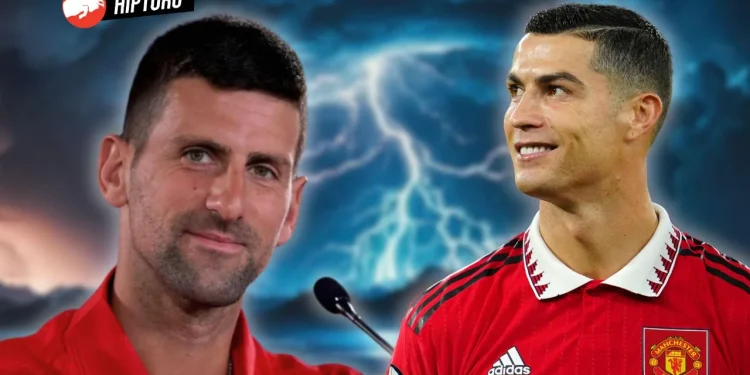The world of sports is not just a showcase of physical prowess and competitive spirit; it often serves as a stage for some of the most inspiring rags-to-riches stories. Athletes from humble beginnings overcoming immense obstacles to reach the pinnacle of their careers embody the very essence of determination, perseverance, and the relentless pursuit of dreams. These stories provide not only entertainment but also motivation and lessons that resonate far beyond the realms of sports.
The appeal of rags-to-riches narratives in sports lies in their universal relatability. Whether it’s escaping poverty, defying socio-economic barriers, or just the personal battles with self-doubt and societal expectations, these athletes’ journeys symbolize hope and the possibility of transformative success through hard work and resilience. In this article, we explore the top 10 rags-to-riches stories in sports, detailing each athlete’s unique path from obscurity to fame and fortune.
Here are the Top 10 Rags to Riches Stories in Sports
1. From Clay to Glory: The Muhammad Ali Story
Early Life and Challenges: Born Cassius Marcellus Clay Jr., Muhammad Ali grew up in the racially segregated South of Louisville, Kentucky. He discovered his talent for boxing at a young age after his bike was stolen and he vowed to “whup” the thief. The police officer who took his complaint encouraged him to learn how to box, thus beginning his journey in the sport. Ali faced not only racial prejudice but also struggled with dyslexia, making his early educational experiences challenging.
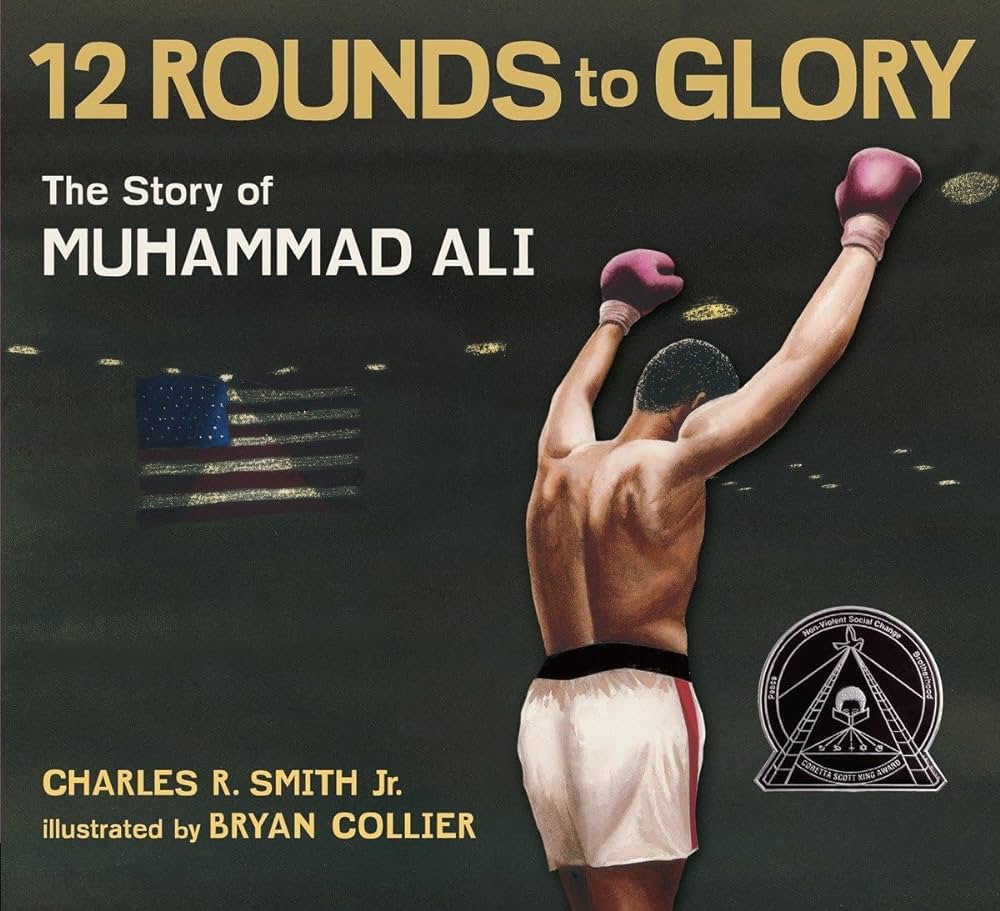
Rise to Fame: Ali’s boxing style was unorthodox, his feet and hands moved with a speed and grace uncommon among heavyweights, and his charismatic personality quickly made him a crowd favorite. His conversion to Islam and his decision to change his name marked significant personal milestones that paralleled his achievements in the ring. Winning an Olympic gold medal at the age of 18 and going on to become the world heavyweight champion, Ali defied expectations set by his modest beginnings.
Impact and Legacy: Ali’s story is a testament to how sports can serve as a vehicle for personal change and societal impact. His battles inside and outside the ring, particularly his stand against the Vietnam War draft and his fight for civil rights made him a global icon. Ali was not just a champion boxer; he was an advocate for justice and equality, leveraging his fame to help uplift others who were disenfranchised.
2. LeBron James: The Kid from Akron
Early Life and Challenges: LeBron James’s journey is a quintessential modern rags-to-riches story. Growing up in Akron, Ohio, LeBron and his mother struggled with poverty, moving from apartment to apartment as she tried to find steady work. Sports became a stabilizing factor in his tumultuous early life. Discovered for his basketball talent in elementary school, James was recruited by St. Vincent-St. Mary High School, where he honed his abilities and emerged as one of the country’s top high school basketball players.
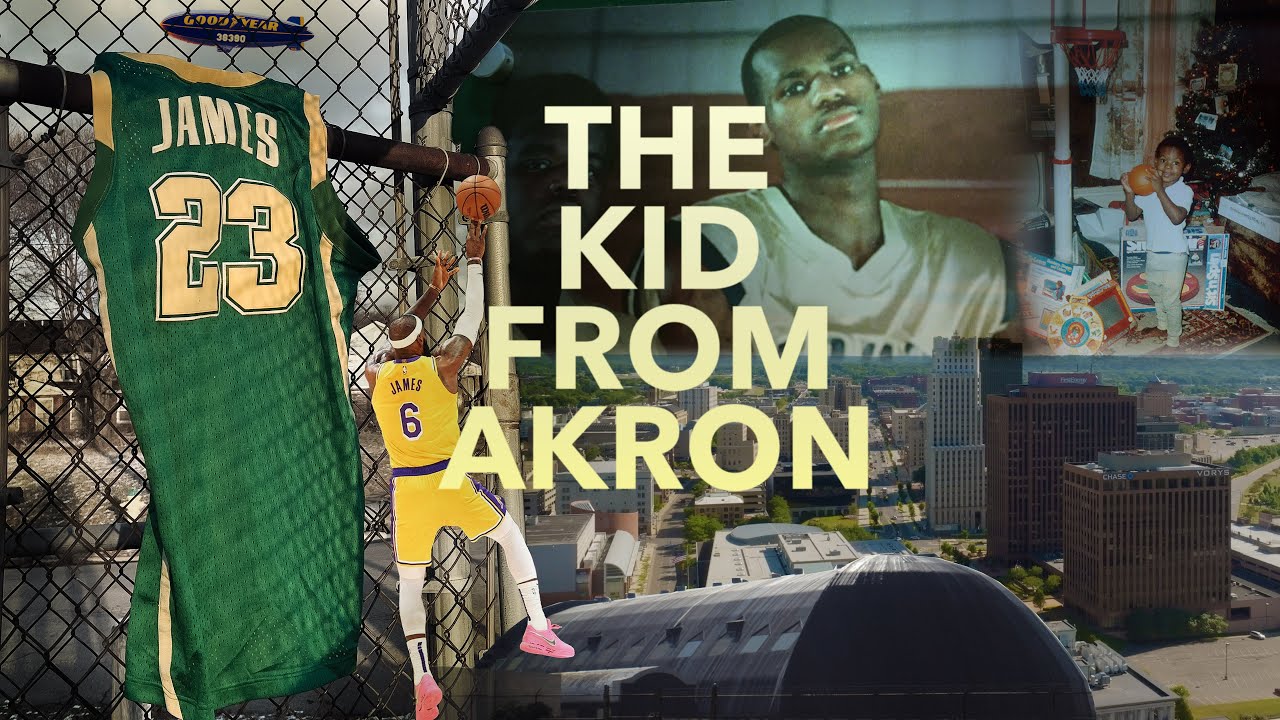
Rise to Fame: LeBron’s high school games were televised nationally, and he was the first overall pick in the 2003 NBA Draft right out of high school. His impact on the court was immediate, earning him the NBA Rookie of the Year award. Throughout his career, LeBron has earned multiple MVP awards and NBA championships, becoming one of the sport’s greatest players.
Impact and Legacy: LeBron’s influence extends beyond basketball. His philanthropic efforts, including the founding of the I PROMISE School for at-risk children in his hometown, demonstrate his commitment to giving back to his community. LeBron uses his platform to address social issues and has become a prominent voice in the fight against racial injustice and inequality.
3. Novak Djokovic: Resilience Beyond the Court
Early Life and Challenges: Novak Djokovic grew up during the turbulent times of the Yugoslav Wars, practicing tennis in a swimming pool that had been emptied and converted into a tennis court. Despite the constant disruptions and limited access to resources, Djokovic’s talent shone through from a young age. His family sacrificed a lot to support his training, with his father even borrowing money to pay for his travels to tournaments.
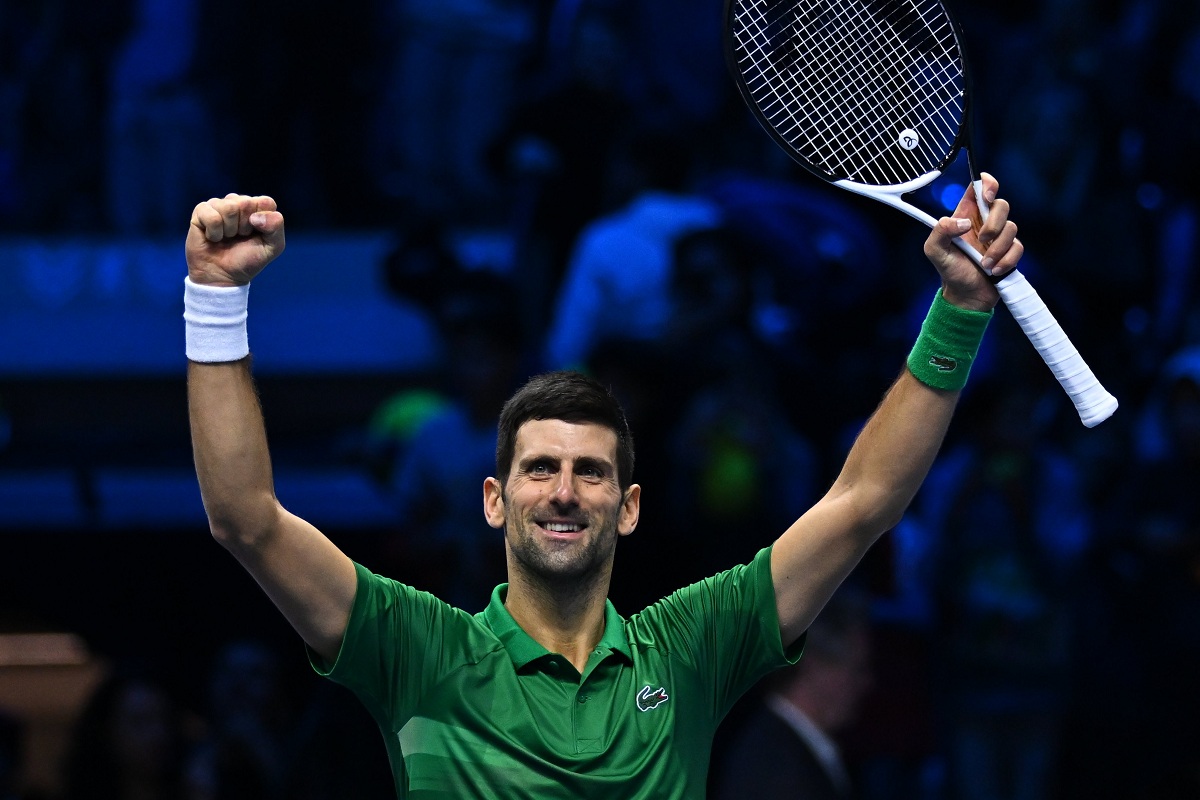
Rise to Fame: Djokovic turned professional in 2003 and faced stiff competition from established stars like Roger Federer and Rafael Nadal. However, his breakthrough came in 2008 when he won his first Grand Slam at the Australian Open. Over the years, he has accumulated an impressive number of Grand Slam titles, challenging the dominance of Federer and Nadal.
Impact and Legacy: Novak Djokovic’s journey from a war-torn Belgrade to the top of the tennis world is a powerful story of resilience and dedication. Off the court, Djokovic is known for his philanthropic efforts, particularly through the Novak Djokovic Foundation, which works to provide educational opportunities to children in Serbia. His story inspires many in his home country and around the world.
4. Serena Williams: Champion Against All Odds
Early Life and Challenges: Serena Williams was born in Saginaw, Michigan, and raised in Compton, California, a place more notorious for gang violence than tennis courts. The youngest of five sisters, Serena, along with her sister Venus, was coached in tennis by their father on the public courts of Compton. Despite facing racial discrimination and financial constraints, the Williams sisters were imbued with a strong work ethic and a belief in their abilities by their parents, who homeschooled them to better focus on their tennis training.
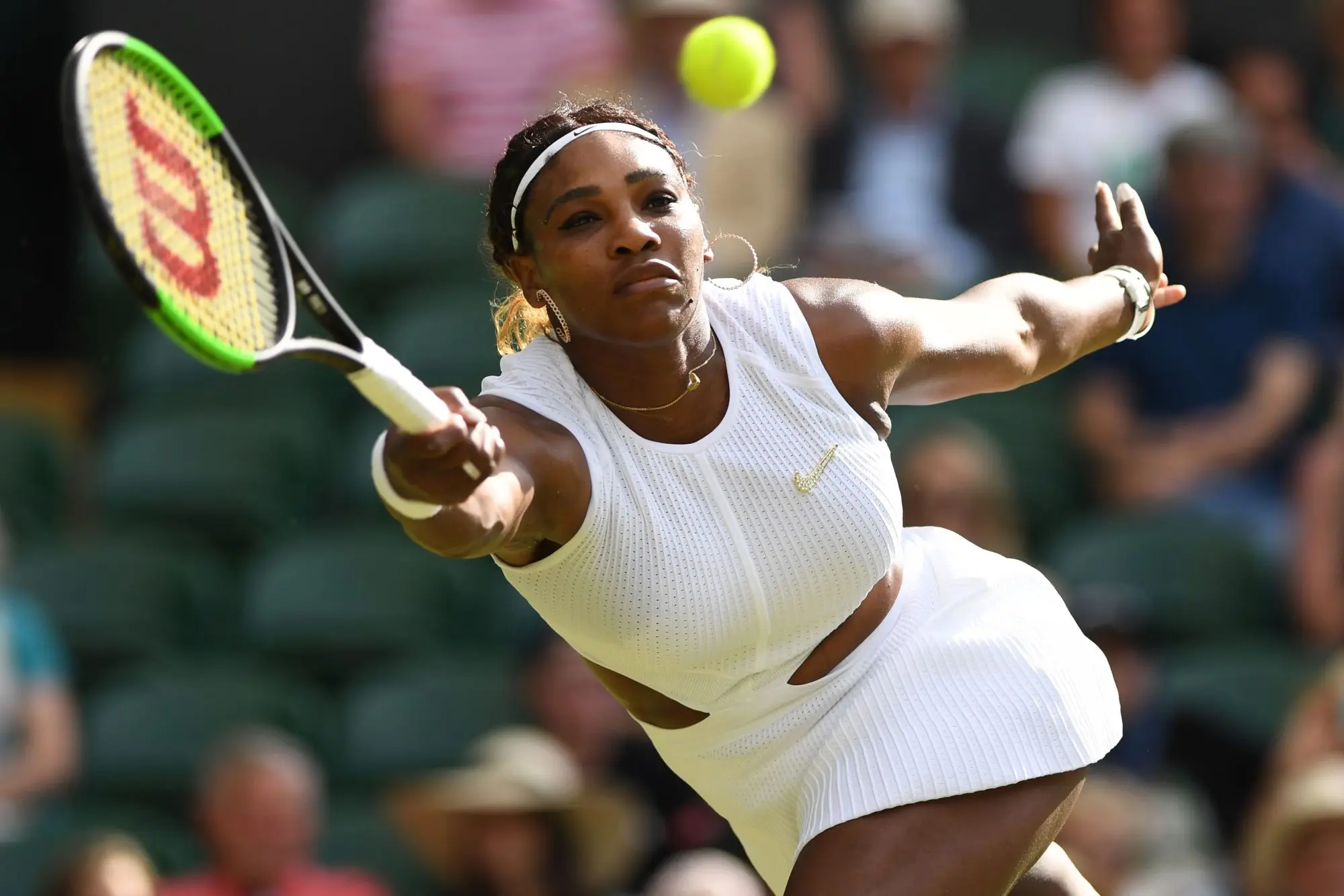
Rise to Fame: Serena turned professional at the age of 14 and soon began to make waves in the world of tennis with her powerful style of play. Her big breakthrough came in 1999 when she won the US Open, her first Grand Slam, at just 17 years old. Over the next two decades, Serena Williams would dominate women’s tennis, winning 23 Grand Slam singles titles, the most by any player in the Open Era.
Impact and Legacy: Serena Williams’ influence extends well beyond the tennis court. She has been a powerful advocate for women’s rights and racial equality in sports and society. Her relentless pursuit of greatness while overcoming various personal and professional challenges has made her an inspiration to millions. Serena’s business ventures, including her clothing line and investments in various companies, showcase her acumen and a shift toward entrepreneurial endeavors, broadening her impact as a role model.
5. Cristiano Ronaldo: The Making of a Football Legend
Early Life and Challenges: Cristiano Ronaldo dos Santos Aveiro was born and raised in Madeira, Portugal. As the youngest child of a cook and a gardener, Ronaldo’s family faced significant financial hardships. His early life in a small tin-roofed home paved the foundation for his resilient character. At age 12, he moved to Lisbon to join Sporting CP’s youth academy, a significant sacrifice as it meant leaving his family behind to pursue his dreams in a competitive environment.
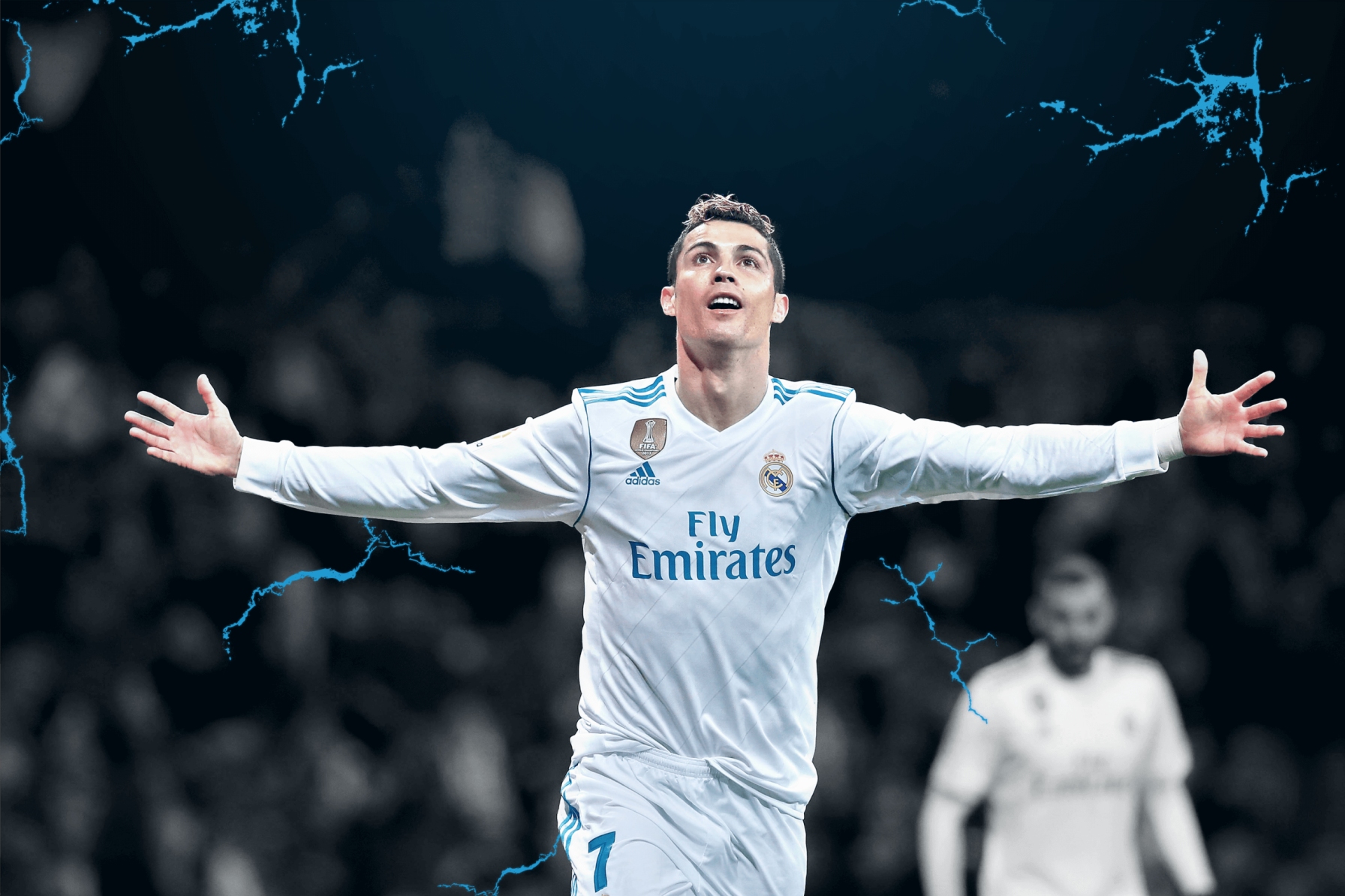
Rise to Fame: Ronaldo’s talent was evident from his teenage years, leading to his first team debut for Sporting CP at just 16. His performance against Manchester United in a friendly match prompted the English club to sign him in 2003. Ronaldo’s time at Manchester United saw him develop from a talented young winger to one of the best footballers in the world, culminating in winning his first Ballon d’Or in 2008. His subsequent move to Real Madrid solidified his status as a global football icon.
Impact and Legacy: Cristiano Ronaldo is known not just for his on-field skills but also for his incredible work ethic and discipline, which have kept him at the top of the game well into his thirties. Off the field, Ronaldo is celebrated for his extensive charity work, including donations to children’s hospitals, cancer treatment centers, and disaster relief efforts. His social media presence and business ventures have also made him one of the most recognized and influential sports personalities globally.
6. Manny Pacquiao: The Fighter from the Streets to the Senate
Early Life and Challenges: Emmanuel “Manny” Pacquiao was born in Kibawe, Bukidnon, Philippines, and grew up in severe poverty. He moved to Manila as a teenager, living on the streets and fighting for small pursuits to survive. Boxing became a way out of destitution for him, and he turned professional at the age of 16, fighting in the light flyweight division.
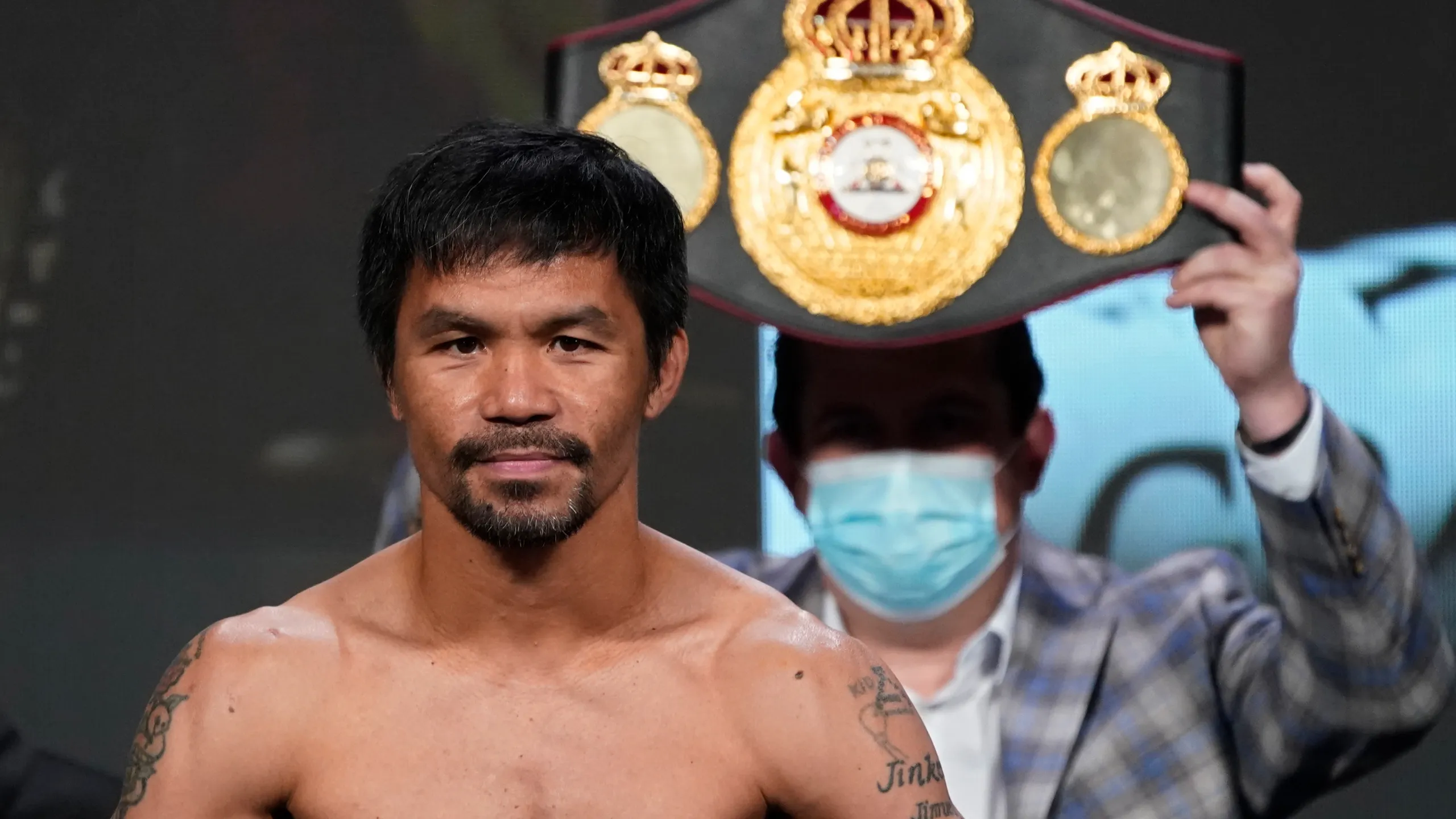
Rise to Fame: Pacquiao’s aggressive fighting style and power quickly made him a star in the boxing world. He gained international fame in 2001 when he defeated Lehlo Ledwaba to win the IBF Super Bantamweight title. This victory was the start of a storied career that would see him win world titles in eight different weight divisions, a feat unprecedented in boxing.
Impact and Legacy: Beyond the ring, Pacquiao’s life story of overcoming extreme poverty has made him a national hero in the Philippines. His entry into politics as a congressman and later as a senator is driven by his desire to improve the lives of the Filipino people, focusing on issues such as education and health care. Pacquiao’s philanthropic efforts, including funding for local development projects and scholarships, are a testament to his commitment to giving back to his community.
7. Lionel Messi: A Journey from Rosario to Global Stardom
Early Life and Challenges: Lionel Messi was born in Rosario, Argentina, into a working-class family. His passion for football was evident from a very young age, but so were the challenges. At the age of 11, Messi was diagnosed with a growth hormone deficiency, a condition that required expensive medical treatment. His local club, Newell’s Old Boys, and even larger teams in Argentina were unable to afford his treatment. This obstacle threatened to derail his promising career before it could truly begin.
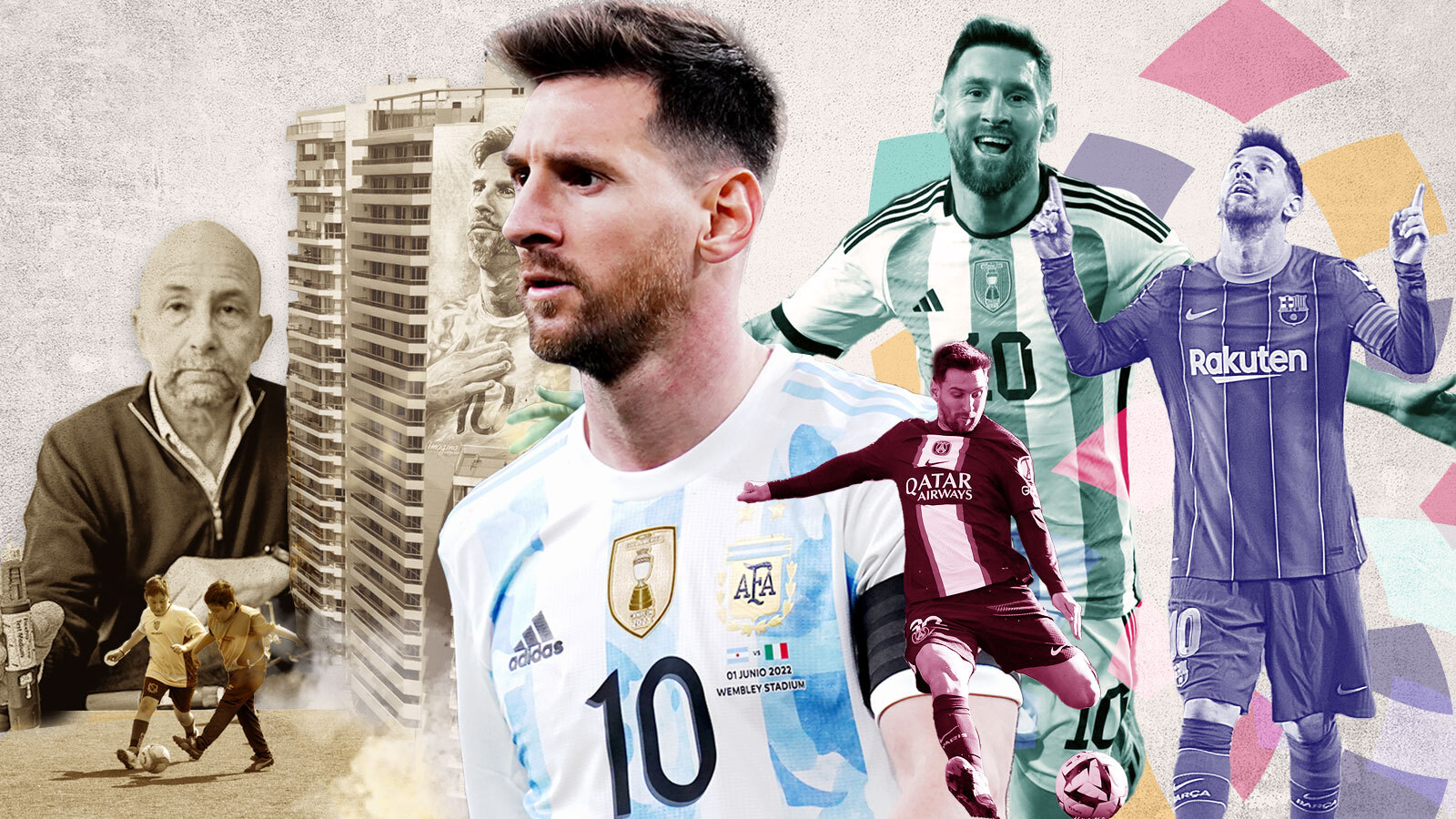
Rise to Fame: Messi’s fortunes changed when FC Barcelona saw his potential and offered to pay for his medical treatments if he moved to Spain. This marked the beginning of his ascent in football. Messi progressed through Barcelona’s famed La Masia academy and made his first-team debut at only 17. His technical skills, vision, and scoring ability soon made him a cornerstone of one of the most successful eras in Barcelona’s history, leading to numerous La Liga titles and UEFA Champions League victories.
Impact and Legacy: Lionel Messi’s impact on football is immense. Known for his humility and dedication, Messi has become a global ambassador for the sport, inspiring countless young athletes around the world. His foundation supports access to education and health care for vulnerable children, reflecting his commitment to using his status for positive change. Despite facing numerous challenges, including public and media scrutiny, Messi’s legacy as one of the greatest footballers of all time remains undisputed.
8. Michael Oher: Triumph Beyond ‘The Blind Side’
Early Life and Challenges: Michael Oher’s story became widely known through the film “The Blind Side,” but his real-life journey is even more compelling. Born in Memphis, Tennessee, Oher faced a childhood of neglect, with his mother battling addiction and his father frequently in prison. He was in and out of foster homes and schools, which severely impacted his education and emotional development.
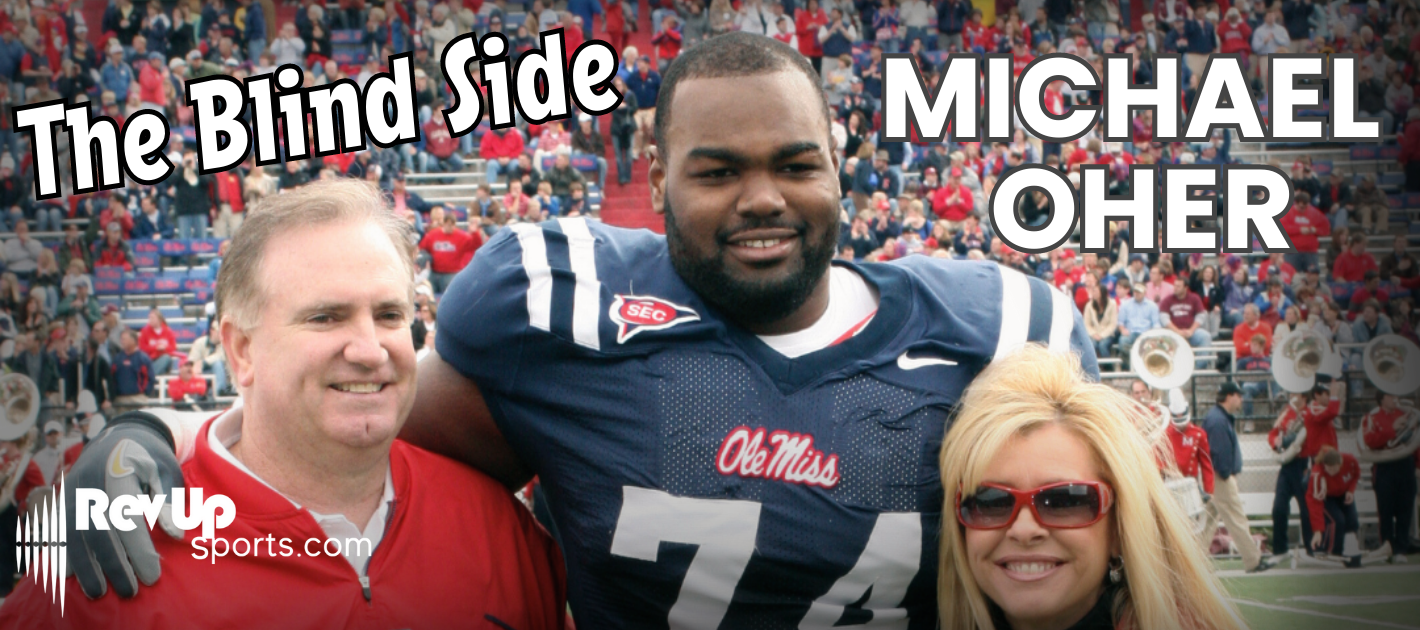
Rise to Fame: Oher’s life took a turn when he was adopted by the Tuohy family, who provided him with the stability and support he needed to excel in both academics and athletics. His impressive size and athleticism made him a standout player in high school football, eventually leading to a scholarship at the University of Mississippi. Oher excelled in college football, which paved his way to the NFL, where he was drafted by the Baltimore Ravens in the first round of the 2009 draft.
Impact and Legacy: Michael Oher’s story is a powerful testament to the impact of compassion and opportunity. It highlights the potential within every individual, regardless of their background, when given the right support. Oher has used his platform to advocate for foster care reform and to support educational and sports programs for underprivileged youth. His journey continues to inspire and motivate people to overcome their circumstances and strive for success.
9. Ronda Rousey: From Judo to the UFC Octagon
Early Life and Challenges: Ronda Rousey faced immense challenges from the beginning of her life, being born with her umbilical cord wrapped around her neck, which caused speech delays. Raised by a single mother who was a judo champion, Rousey was introduced to the sport at an early age. Despite their financial struggles and the emotional toll of losing her father to suicide when she was just eight, Rousey excelled in judo, driven by her mother’s resilience and determination.
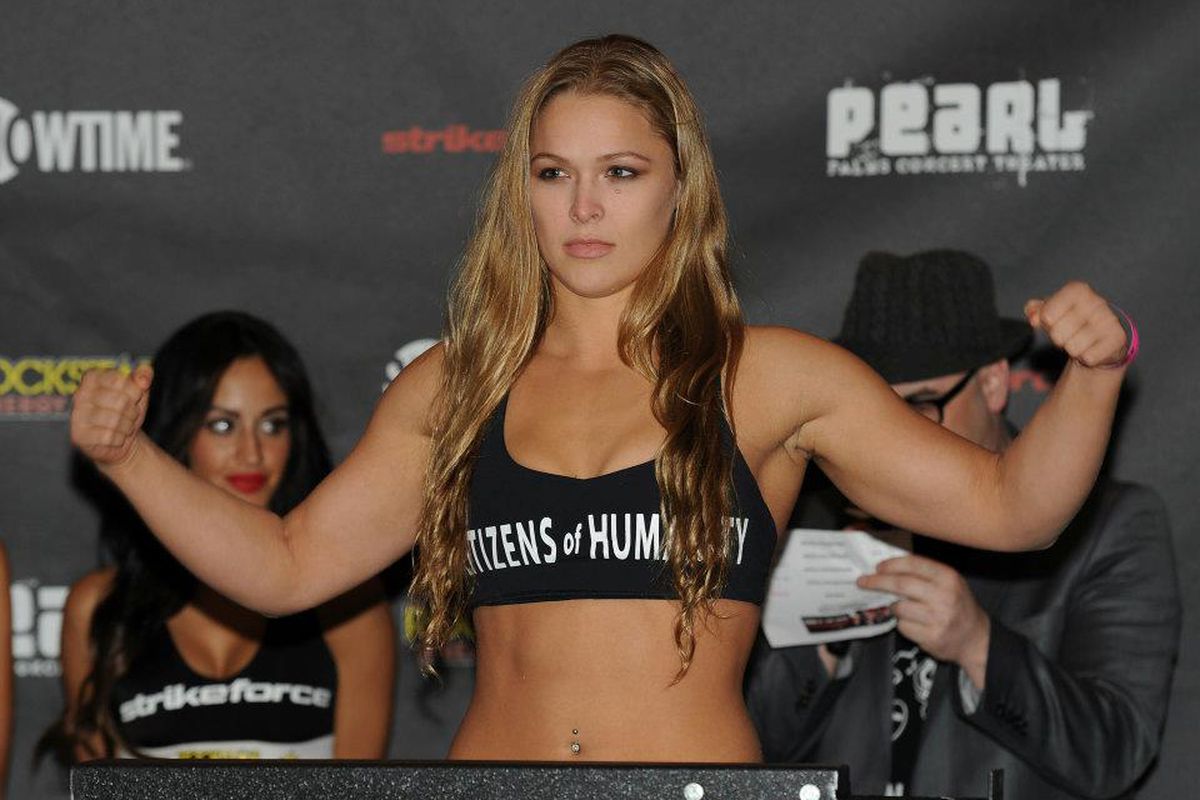
Rise to Fame: Rousey’s judo career peaked when she won a bronze medal at the 2008 Beijing Olympics, making her the first American woman to earn an Olympic medal in judo. Transitioning to mixed martial arts, Rousey quickly made a name for herself with her aggressive style and armbar finishes, eventually joining the UFC. Her dominance in the sport, particularly as the UFC’s first female champion, helped popularize women’s MMA globally.
Impact and Legacy: Ronda Rousey’s influence extends beyond the octagon. She has been a vocal advocate for women’s equality in sports and has inspired countless women to pursue careers in MMA and other sports where they were traditionally underrepresented. Her autobiographical book and public appearances have highlighted her journey, focusing on mental health, resilience, and empowerment, themes that resonate widely with diverse audiences.
10. Usain Bolt: The Lightning Bolt from Jamaica
Early Life and Challenges: Usain Bolt was born in the small town of Sherwood Content in Jamaica, to parents who ran a local grocery store. Growing up in a modest setting, Bolt’s athletic talent was evident from a very young age, but facilities and resources were limited. His parents and community pooled their efforts to support his training, often struggling to afford proper nutrition and equipment essential for his development as a sprinter.
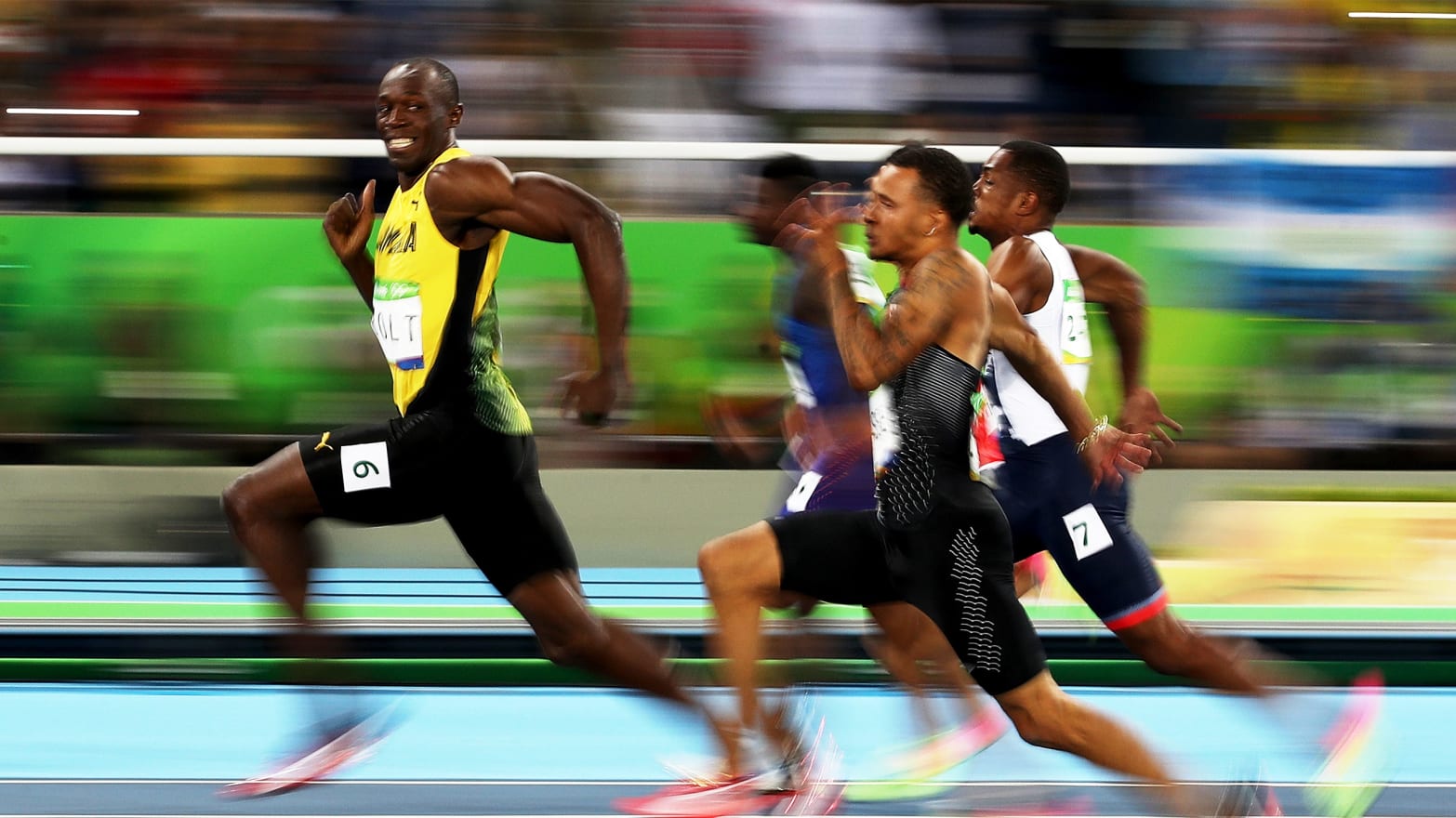
Rise to Fame: Bolt burst onto the international scene at the 2002 World Junior Championships in Kingston, where he won the 200m, making him the youngest world junior gold medalist ever. Despite injuries and initial struggles with the transition to professional racing, Bolt’s breakthrough came in the 2008 Beijing Olympics. There, he shattered world records in both the 100m and 200m, stunning the world with his speed and charismatic personality. His records and distinctive celebration pose became iconic, earning him the nickname “Lightning Bolt.”
Impact and Legacy: Usain Bolt’s success brought a renewed interest in track and field globally, particularly highlighting the rich talent pool in the Caribbean. His engaging personality and sportsmanship have made him a beloved figure worldwide, transcending the sport. Bolt’s dedication to his community in Jamaica, through various philanthropic efforts, underscores his commitment to giving back to the place that shaped him. His legacy is not just that of the fastest man in the world, but also a charismatic ambassador of sport and positive change.
The tales of these athletes, each charting a unique path from humble beginnings to international stardom, not only inspire awe but also evoke a deep sense of the transformative power of sports. These stories transcend the boundaries of mere entertainment; they serve as profound life lessons on perseverance, resilience, and the relentless pursuit of goals. The universal appeal of such rags-to-riches narratives lies in their ability to connect with individuals from all walks of life, offering a beacon of hope and a testament to the human spirit’s capacity to overcome adversity.
The Power of Opportunity and Support
Central to each of these stories is the theme of opportunity—be it through serendipitous encounters, supportive family members, or mentors who recognized potential and provided crucial support at pivotal moments. For athletes like Lionel Messi and Usain Bolt, the intervention of a sports program or a local community’s backing offered them the platform they needed to showcase and hone their talents. This underscores the vital role that accessible sports programs and community support play in nurturing talent, especially in underprivileged areas. It demonstrates that with the right opportunities, potential can be found and cultivated anywhere.
Resilience in the Face of Adversity
Adversity is another recurring element in these narratives. Each athlete faced personal and professional challenges that tested their resolve and commitment. Whether it was Serena Williams battling societal and systemic obstacles or Cristiano Ronaldo dealing with the pain of separation from his family at a young age to pursue his dreams, these stories highlight resilience as a key ingredient in the recipe for success. The ability to endure, adapt, and overcome challenges is what often separates those who achieve greatness from those who do not. The psychological resilience these athletes displayed, turning each setback into a stepping stone towards greater achievements, provides powerful lessons in mental toughness and determination.
The Impact Beyond the Game
The influence of these athletes extends far beyond their respective sports. Figures like Muhammad Ali and LeBron James have leveraged their fame to fight for social justice, influence political matters, and inspire cultural change. Their careers demonstrate how athletes can be powerful agents of change, using their platforms to bring attention to critical social issues and advocate for the underrepresented. This aspect of their legacy is perhaps as significant as their sporting achievements, highlighting the role of sports figures as community leaders and global ambassadors.
Role Models for Future Generations
The legacies of these athletes also serve as blueprints for future generations. Young people looking up to these stars see not only the glamour of their achievements but also the hard work, sacrifices, and relentless pursuit of excellence that defined their journeys. These athletes’ stories are educational tools that parents, coaches, and educators can use to teach values such as discipline, hard work, and integrity. They prove that success is not handed to anyone; it is earned through effort and perseverance.
Reflecting on Our Potential
On a broader scale, the stories of these ten athletes encourage us all to reflect on our potential and the barriers we face. They challenge us to question what might be possible if we commit ourselves to our goals with as much passion and perseverance as these athletes did. They remind us that while not everyone can be a professional athlete, the principles of hard work, resilience, and integrity apply universally, capable of leading to success in any field.
The rags-to-riches stories of athletes like Muhammad Ali, Serena Williams, and Usain Bolt are not just captivating narratives but also profound reminders of the human potential for greatness. These stories teach us about the power of opportunity, the importance of resilience, and the impact of using one’s platform for the greater good. They inspire us to strive for our best, to support others in their journeys, and to never underestimate the power of one person to make a difference. In the echoing cheers of stadiums and the silent reading of these tales, we find a common thread—a celebration of the human spirit and the endless possibilities that lie within each of us.


